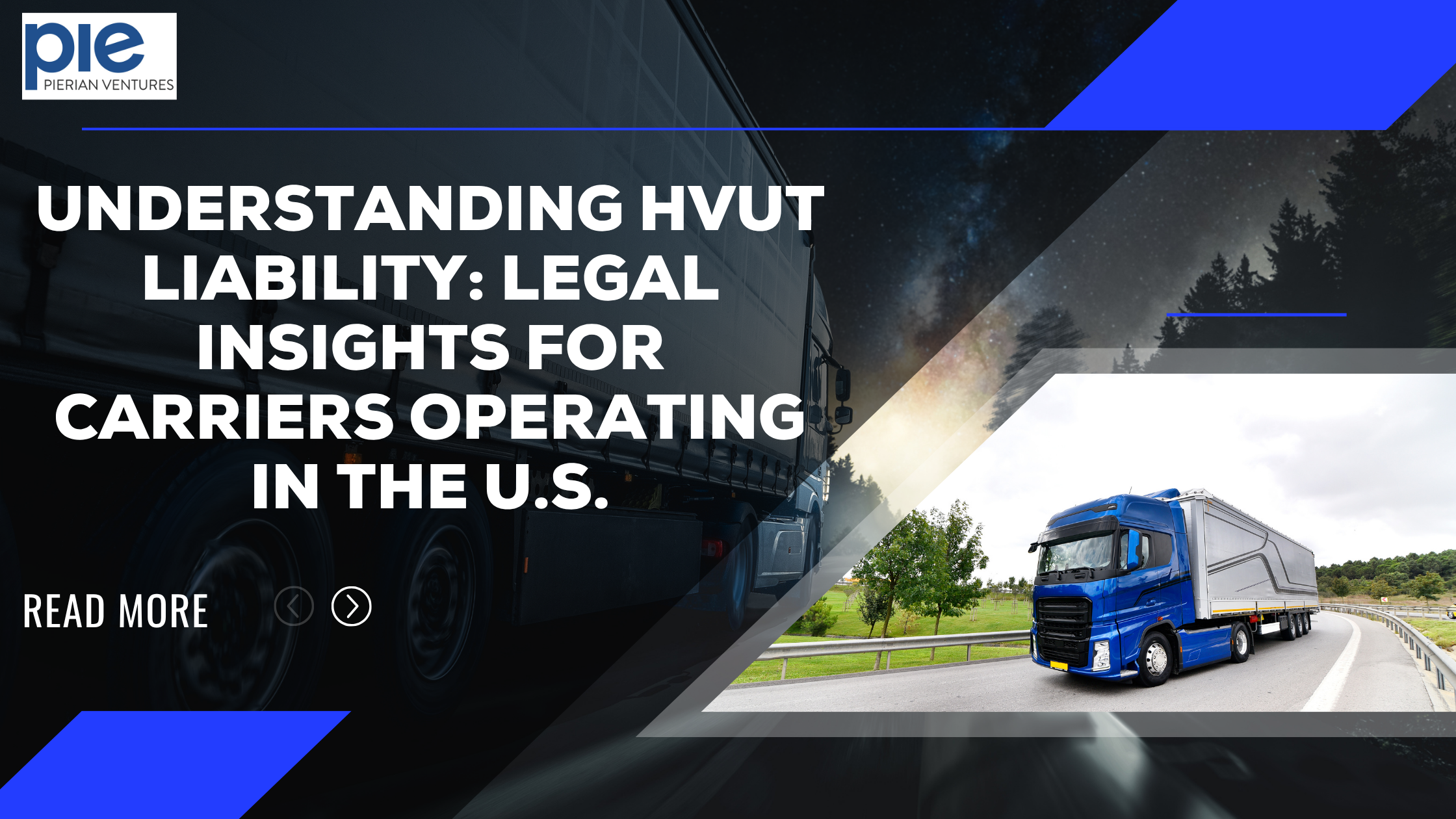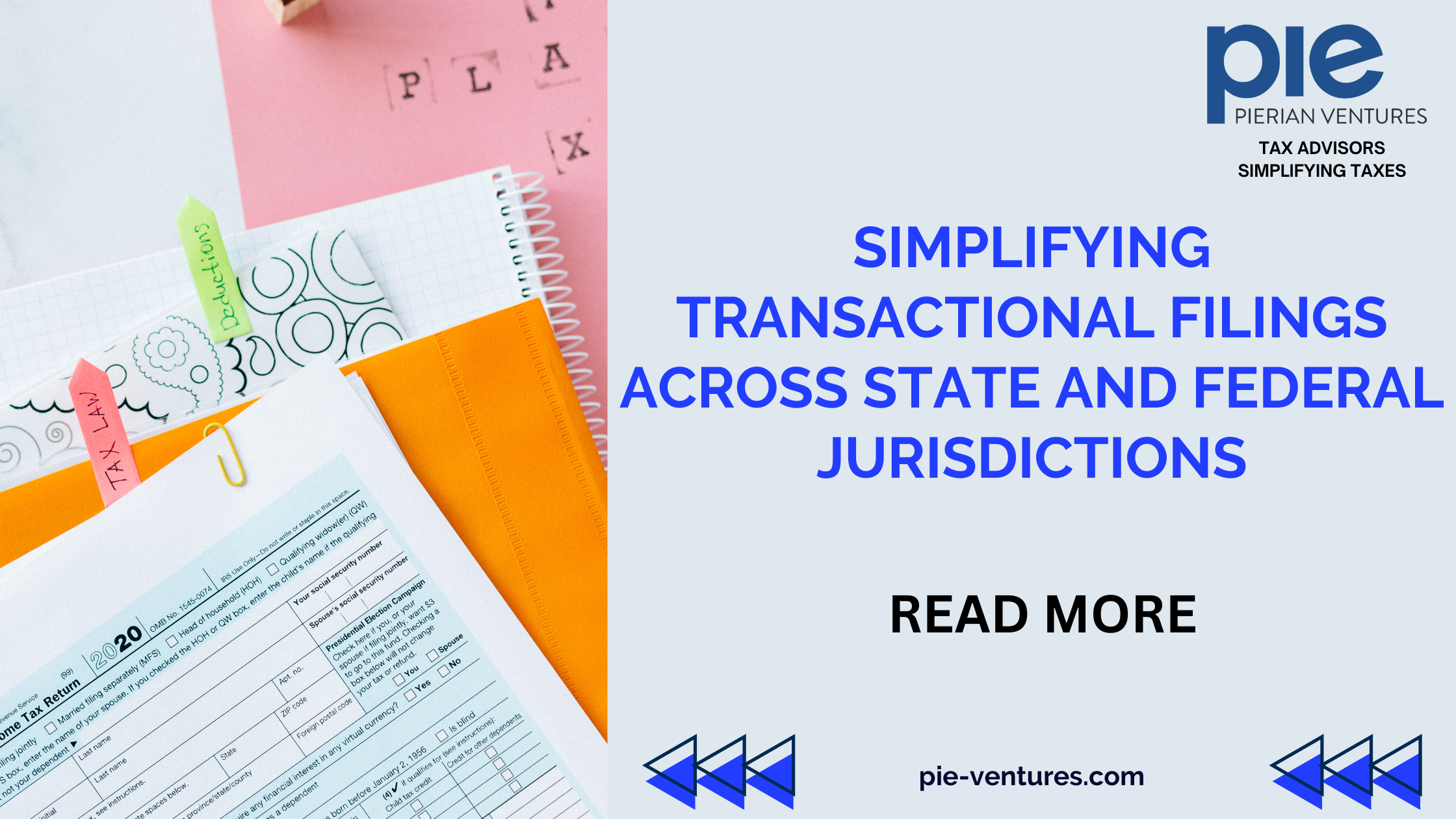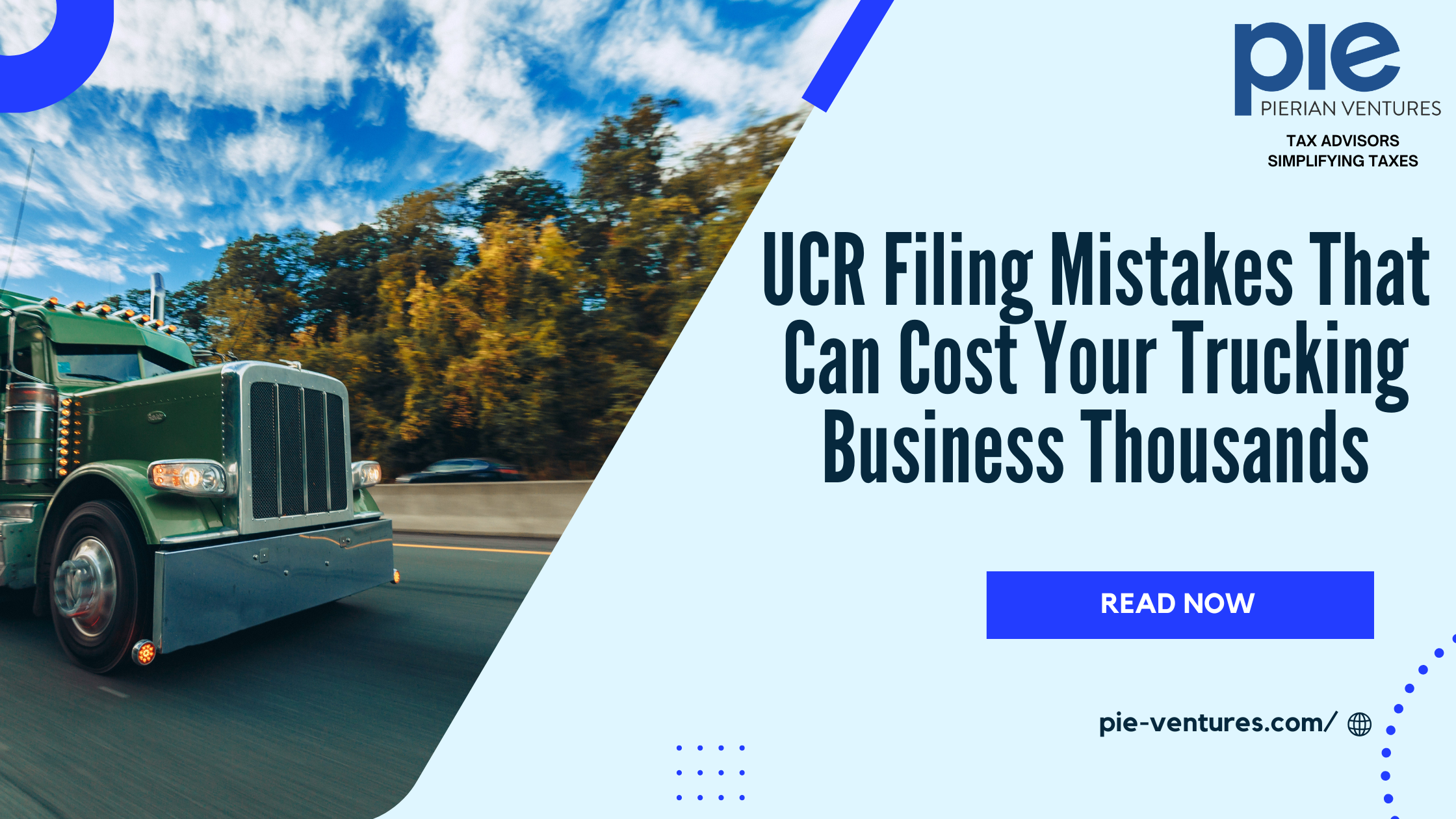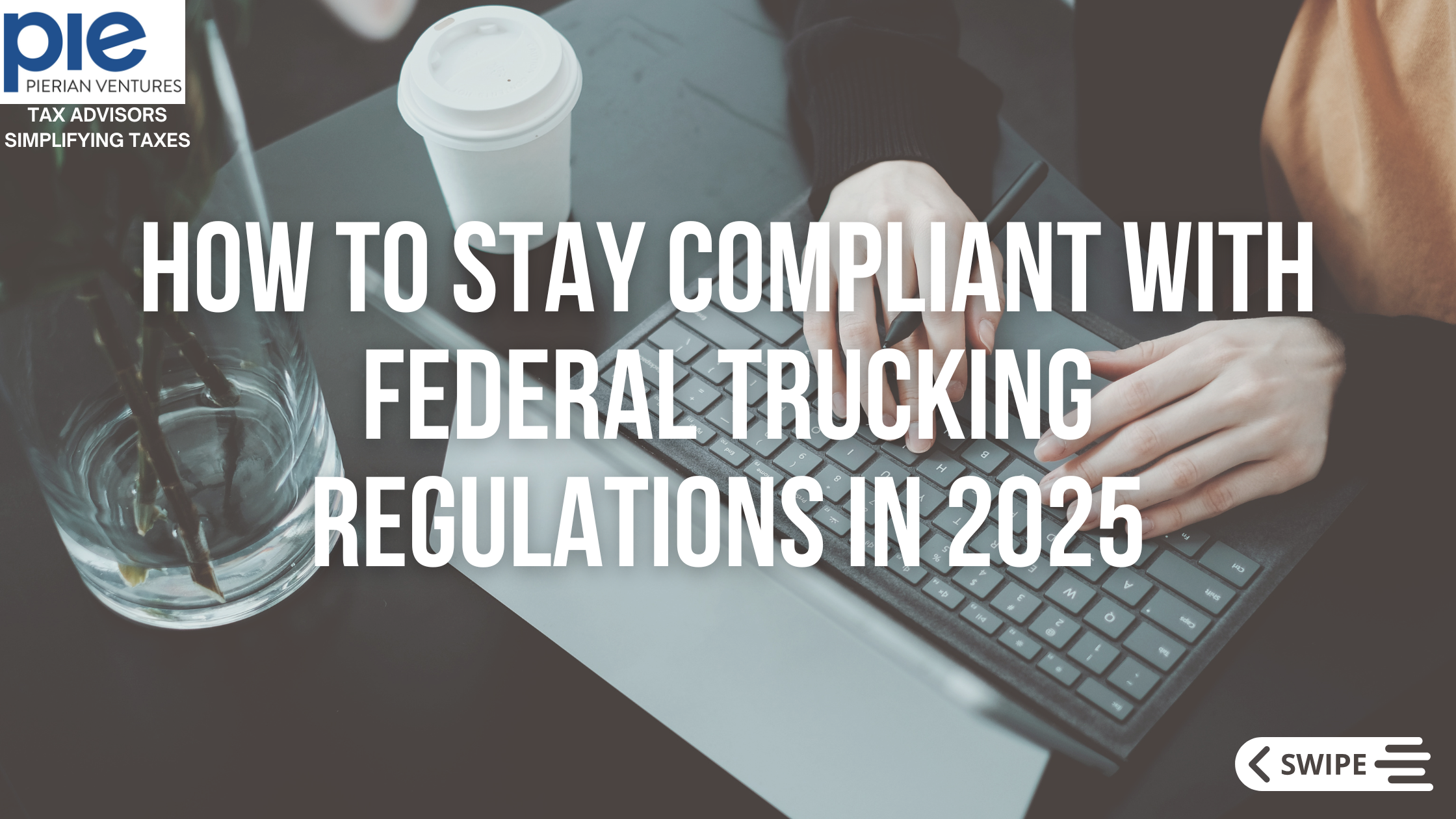From DOT Numbers to IFTA Reports: Comprehensive Tax Solutions for Trucking Businesses
The trucking industry operates within a complex regulatory framework that requires meticulous tax compliance. From obtaining a Department of Transportation (DOT) Number to filing International Fuel Tax Agreement (IFTA) reports, companies must navigate a web of federal, state, and local regulations. Non-compliance can result in financial penalties, operational disruptions, and reputational damage, making a proactive approach to tax planning and compliance essential.
Advanced Tax Compliance Framework in Trucking
1. DOT Number Registration: Regulatory Oversight and Risk Management
All commercial trucking businesses operating in interstate commerce must obtain a USDOT Number from the Federal Motor Carrier Safety Administration (FMCSA). This identifier is crucial for compliance audits, safety tracking, and tax filings. Beyond a mere registration requirement, the DOT number plays a key role in risk assessment by regulatory authorities.
Key Considerations:
- Carrier Safety Ratings: DOT compliance is directly tied to a company’s safety performance, which can impact its ability to secure contracts and maintain operating authority.
- Audits & Investigations: Carriers with frequent violations or tax inconsistencies are subject to intensified FMCSA audits, making meticulous record-keeping imperative.
- Cross-Border Operations: Trucking businesses operating in Canada and Mexico must ensure additional compliance with international safety and taxation agreements.
2. International Fuel Tax Agreement (IFTA): Optimization Strategies for Fuel Tax Compliance
Trucking companies that operate across multiple jurisdictions must comply with IFTA, a system designed to streamline fuel tax reporting. However, many businesses face challenges with accurate tracking, which can lead to underpayment or overpayment of taxes.
Best Practices for IFTA Compliance:
- Automated Fuel & Mileage Tracking: Leveraging GPS-enabled telematics and electronic logging devices (ELDs) ensures accurate distance and fuel tracking, reducing errors in tax calculations.
- Data Reconciliation & Audit Readiness: Implementing automated reconciliation of fuel receipts with mileage logs can prevent discrepancies that trigger audits.
- Tax Credit Optimization: Companies can strategically purchase fuel in states with lower tax rates while ensuring that fuel consumption aligns with tax obligations in higher-tax jurisdictions.
Failure to comply with IFTA regulations can result in hefty fines, tax liabilities, and even the suspension of operating licenses. Investing in technology-driven compliance solutions can mitigate these risks.
3. Heavy Vehicle Use Tax (HVUT): Regulatory Challenges & E-Filing Solutions
The Heavy Vehicle Use Tax (HVUT) is a federal tax levied on trucks with a gross weight of 55,000 pounds or more. Companies must file Form 2290 with the Internal Revenue Service (IRS) and maintain proper documentation to avoid registration delays.
HVUT Compliance Challenges & Solutions:
- Timely Filing & Penalty Avoidance: The August 31st deadline is strictly enforced, and late filings result in penalties and interest. Automated reminders and e-filing can ensure timely submissions.
- Multi-Fleet Considerations: Carriers operating diverse fleets must accurately classify vehicles and adjust tax payments accordingly.
- IRS Audits & Documentation Requirements: Companies should maintain digital records of Form 2290 filings and proof of payment (Schedule 1) to avoid complications during tax audits.
4. State & Local Tax Regulations: Avoiding Overlapping Tax Liabilities
Beyond federal requirements, trucking companies must comply with state-specific fuel and road use taxes. These additional tax obligations can create complexity in compliance and financial planning.
Examples of State-Specific Tax Regulations:
- Kentucky Weight Distance Tax: Applies to vehicles over 59,999 pounds.
- New York Highway Use Tax (HUT): Requires separate filings for vehicles exceeding 18,000 pounds.
- New Mexico Weight Distance Tax: Calculated based on miles traveled within the state.
Trucking businesses must stay informed about evolving state tax laws and adopt centralized compliance platforms to manage multiple jurisdictions effectively.
Overcoming Key Tax Compliance Challenges
Data Integrity & Record-Keeping Burden
Accurate tax reporting hinges on robust data collection and record management. Manual record-keeping increases exposure to errors and compliance risks. Implementing cloud-based platforms for real-time data tracking ensures seamless IFTA reporting, HVUT compliance, and DOT audits.
Regulatory Updates & Compliance Adaptation
The trucking industry is subject to frequent tax policy changes at both federal and state levels. Businesses must proactively monitor legislative updates, adapt tax strategies, and leverage professional tax advisory services to mitigate compliance risks.
Financial Penalties & Business Continuity Risks
Non-compliance with tax regulations can lead to license suspensions, operational shutdowns, and hefty financial penalties. Establishing an automated compliance management framework minimizes risks and ensures business continuity.
Strategic Best Practices for Trucking Tax Compliance
- Leverage Advanced Compliance Software: Cloud-based tax platforms with AI-driven analytics ensure accurate tax filings and minimize errors.
- Establish a Centralized Record-Keeping System: Digital documentation of mileage, fuel purchases, and tax payments simplifies audits and regulatory reporting.
- Monitor Legislative Changes & Adapt Strategies: Engaging with industry tax experts ensures proactive compliance with evolving regulations.
- Implement Automated Tax Filing Workflows: Reducing manual processing errors through automation enhances operational efficiency and compliance accuracy.
- Partner with Tax & Compliance Experts: Working with specialists provides strategic insights and technology-driven solutions for sustained compliance.
Conclusion
Tax compliance in the trucking industry is a multifaceted challenge requiring proactive planning, robust record-keeping, and technology-enabled solutions. From DOT registration to IFTA filings and state-specific tax obligations, businesses must navigate an intricate regulatory landscape to avoid financial penalties and operational disruptions.
By leveraging innovative compliance solutions, trucking companies can mitigate risks and streamline tax reporting. A strategic approach to tax compliance ensures that businesses stay ahead of regulatory changes, allowing them to focus on growth and efficiency.














